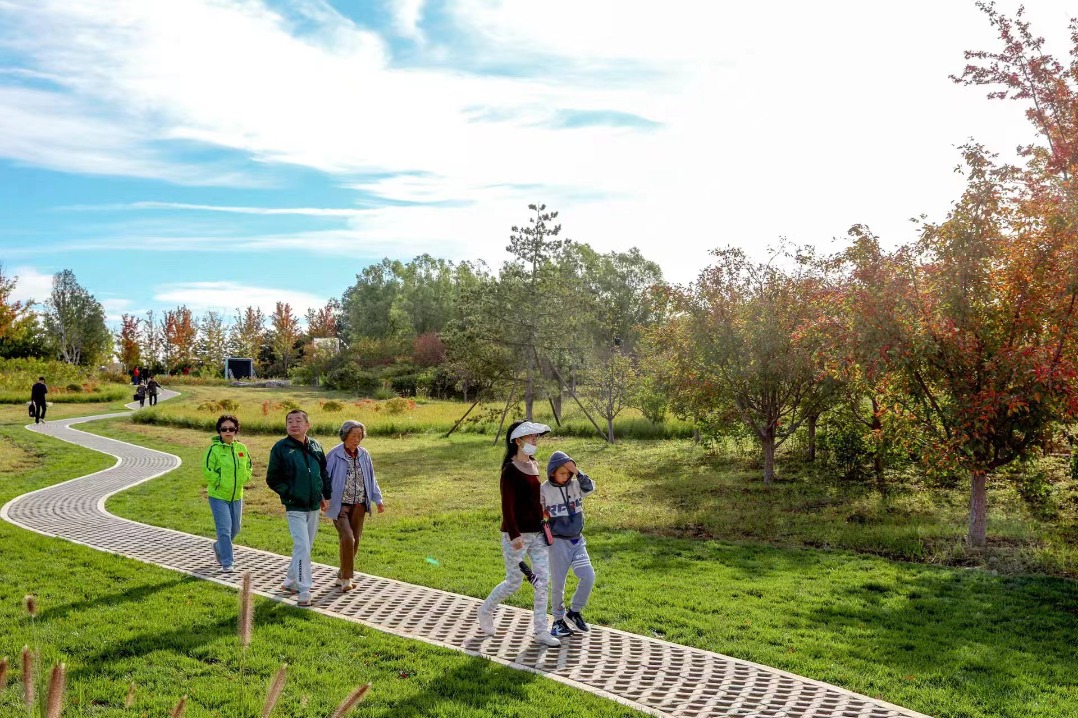Profile: Xi Jinping, the man who leads CPC on new journey


Observers say this development vision is intended to lead socialist China out of a development trap reliant on extensive and inefficient growth at the cost of ecological damage, shifting the country to high-quality development, and avoiding situations where the rich become richer and the poor poorer.
As head of the central commission for deepening overall reform, formerly a central leading group, Xi launched a series of reforms that broke new ground while furthering Deng Xiaoping's reform and opening up.
Reform has reached into diverse fields, spanning land-use policies, Party building in state-owned firms, judicial procedure, family planning, fiscal and tax policies, the real estate market, science and technology, and anti-monopoly.
One reform measure, above all, stands out: the modernization of institutions, which directly impacts China's long-term development and stability. Its essence is upholding and improving socialism with Chinese characteristics, and modernizing China's system and capacity for governance.
At times, reforms encountered great difficulties. To address controversies and eliminate obstructions, Xi himself had to give the final say.
Xi headed a group tasked with drafting the document of the third plenary session of the 18th CPC Central Committee. The document centered on deepening overall reform.
Officials and experts who participated in the drafting and appraisals said Xi personally conducted research and made decisions, facilitating many breakthroughs. For example, the new proposition "let the market play the decisive role in resource allocation" resulted from Xi's vital decision.
"Without General Secretary Xi's determination, it would not have been possible to roll out many major reforms," said a source familiar with the process.
To reverse environmental damage, Xi demanded that polluting factories address problems or face closure. He issued a 10-year ban on fishing to protect China's longest river, the Yangtze. He gave six instructions to demolish illegally constructed villas in the Qinling Mountains, home to giant pandas, snub-nosed monkeys, and many other rare wild animals.

For many Chinese people, environmental improvements are obvious. In 2020, the percentage of days with good air quality was 87 percent in cities at and above the prefecture level. The proportion of surface water with fairly good quality rose to 83.4 percent. As a result, 89.5 percent of Chinese people were satisfied with the environment.
Reforms have made China more open. In 2013, the first pilot free trade zone was established in Shanghai. Now the number of such zones has reached 21, including the entire island of Hainan, which is roughly the size of a small European country. China's negative list for foreign investment has been further shortened.
While some countries chose to erect trade barriers, China made itself host of a series of global trade and investment fairs. Xi personally initiated the China International Import Expo, one of the multiple national-level expos across the country. China also took the lead in ratifying the Regional Comprehensive Economic Partnership.
By the end of 2020, China had rolled out 2,485 reform plans in over seven years. The targets and missions set at the third plenary session of the 18th CPC Central Committee had been essentially accomplished as scheduled, Xi announced.
From 2013 to 2020, China's GDP grew by about 6.4 percent each year on average, contributing more than 30 percent of world economic growth on average for many years in a row. China's GDP exceeded the 100-trillion-yuan threshold in 2020, or about seven-tenths of that of the United States.
In 2021, China ranked 12th in the Global Innovation Index, higher than Japan, Israel, and Canada. It is the top recipient of foreign direct investment and the world's No. 1 consumer market.
So far, the most impressive achievement in the new era has been the accomplishment of the "first centenary goal," namely building a moderately prosperous society in all respects, said Liu Ronggang, another research fellow at the Institute of Party History and Literature of the CPC Central Committee.
The term moderately prosperous, or "Xiaokang" in Chinese, originates from the Book of Songs of ancient China. It is an aspiration for a well-off life cherished by the Chinese people for thousands of years.
The country has the world's most extensive social security system in scale and the largest middle-income group. Extreme poverty has ended, once and for all.
Over the past nine years, about 100 million people have been hoisted out of extreme poverty.
Xi ordered Party members and officials to be stationed at impoverished villages to carry out targeted poverty alleviation measures at the front line.
Xi himself had visited every one of the country's 14 contiguous poorest areas. Eliminating extreme poverty was likened to fighting a war. Indeed, the campaign had its fallen heroes, with more than 1,800 people dying in the line of duty.
Xi also comprehensively reformed the armed forces. Reiterating the principle established by Mao Zedong that "the Party commands the gun," Xi introduced a series of reforms in the military's leadership and command system, size, structure, and force composition. He demanded the military be combat-ready. He regularly inspected military bases. He boarded China's first domestically built aircraft carrier and new-generation nuclear-powered submarine.
























